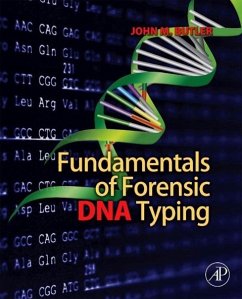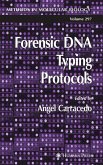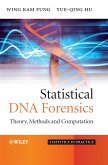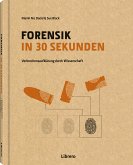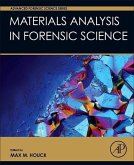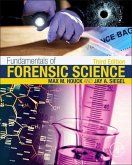Fundamentals of Forensic DNA Typing is written with a broad viewpoint. It examines the methods of current forensic DNA typing, focusing on short tandem repeats (STRs). It encompasses current forensic DNA analysis methods, as well as biology, technology and genetic interpretation. This book reviews the methods of forensic DNA testing used in the first two decades since early 1980's, and it offers perspectives on future trends in this field, including new genetic markers and new technologies. Furthermore, it explains the process of DNA testing from collection of samples through DNA extraction, DNA quantitation, DNA amplification, and statistical interpretation. The book also discusses DNA databases, which play an important role in law enforcement investigations. In addition, there is a discussion about ethical concerns in retaining DNA profiles and the issues involved when people use a database to search for close relatives. Students of forensic DNA analysis, forensic scientists, and members of the law enforcement and legal professions who want to know more about STR typing will find this book invaluable.
Includes a glossary with over 400 terms for quick reference of unfamiliar terms as well as an acronym guide to decipher the DNA dialect Continues in the style of Forensic DNA Typing, 2e, with high-profile cases addressed in D.N.A.Boxes-- "Data, Notes & Applications" sections throughout Ancillaries include: instructor manual Web site, with tailored set of 1000+ PowerPoint slides (including figures), links to online training websites and a test bank with key
Includes a glossary with over 400 terms for quick reference of unfamiliar terms as well as an acronym guide to decipher the DNA dialect Continues in the style of Forensic DNA Typing, 2e, with high-profile cases addressed in D.N.A.Boxes-- "Data, Notes & Applications" sections throughout Ancillaries include: instructor manual Web site, with tailored set of 1000+ PowerPoint slides (including figures), links to online training websites and a test bank with key
"There is perhaps no individual better suited to author a foundational survey of forensic DNA typing than John Butler. As with past editions, Butler's knowledge, along with his organizational and communication skills make Fundamentals of Forensic DNA Typing a must read for students, forensic practitioners and trial attorneys. This text provides the reader with insightful and understandable explanations necessary to comprehend the underpinnings of forensic DNA analysis. It continues in the tradition of its predecessors as the premier textbook on the forensic DNA subject." - Richard Saferstein, Ph.D. Author and Forensic Science Consultant
"When ScienceWatch.com, a Thomson Reuters web resource for measuring and analyzing science trends, recently listed the most influential institutions and researchers in forensic science based on journal citations, the National Institute of Standards and Technology (NIST) and one of its researchers, John Butler, were among the leaders."--ThomasNet.com
"Intended as the companion to the 2010 publication, Fundamentals of Forensic DNA Typing, this title contains 18 chapters with four appendices providing up-to-date coverage of essential topics in the field of DNA analysis. The book includes new information on DNA databases, low-level DNA, and validation; a comprehensive listing of alleles for the 23 STR loci present in commercial kits, and coverage of familial searching."--Evidence Technology Magazine, July-August 2012, page 4
"When ScienceWatch.com, a Thomson Reuters web resource for measuring and analyzing science trends, recently listed the most influential institutions and researchers in forensic science based on journal citations, the National Institute of Standards and Technology (NIST) and one of its researchers, John Butler, were among the leaders."--ThomasNet.com
"Intended as the companion to the 2010 publication, Fundamentals of Forensic DNA Typing, this title contains 18 chapters with four appendices providing up-to-date coverage of essential topics in the field of DNA analysis. The book includes new information on DNA databases, low-level DNA, and validation; a comprehensive listing of alleles for the 23 STR loci present in commercial kits, and coverage of familial searching."--Evidence Technology Magazine, July-August 2012, page 4

